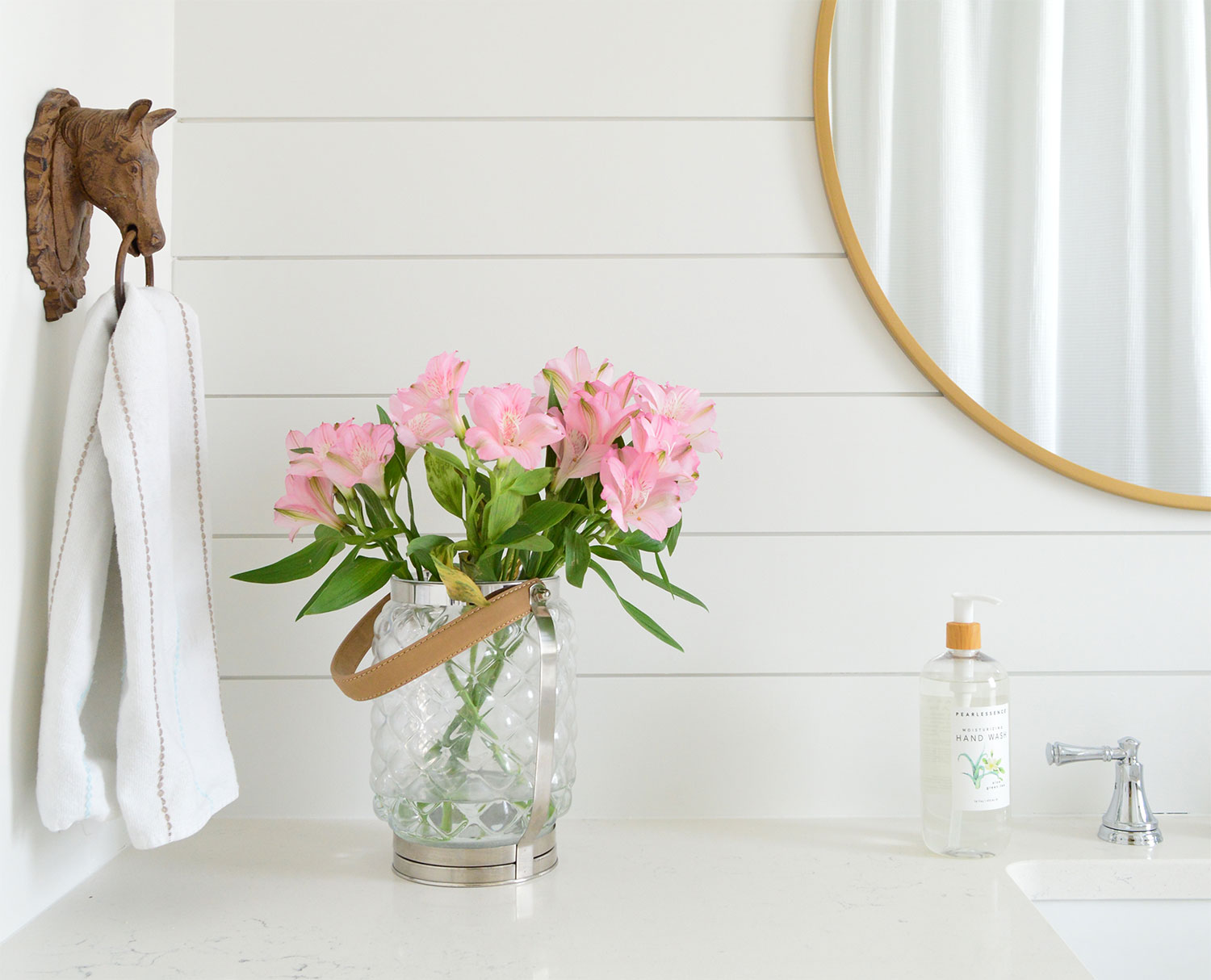From its name, you might expect Sherwin-Williams Extra White (SW7 7006) to be the brightest, whitest paint on the market. And while it is a crisp clean white color – it has some nuances when it comes to where and when it should (and shouldn’t) be used in your home. So let’s answer some common questions about this popular white paint color so you can decide if it’s right for you.
What makes SW Extra White a popular white?
Extra White is one of the most popular white paints out there. Lots of these whites have names that lead you to believe they are the best, brightest, or “whitest” white around. You’ll see names like Extra, Super, Ultra, Pure, and even Simply White to sort through (all of which we’ll compare in more detail later). And guess what? None of these are actually the brightest white available! Don’t worry, we’ll talk about that particular color too.
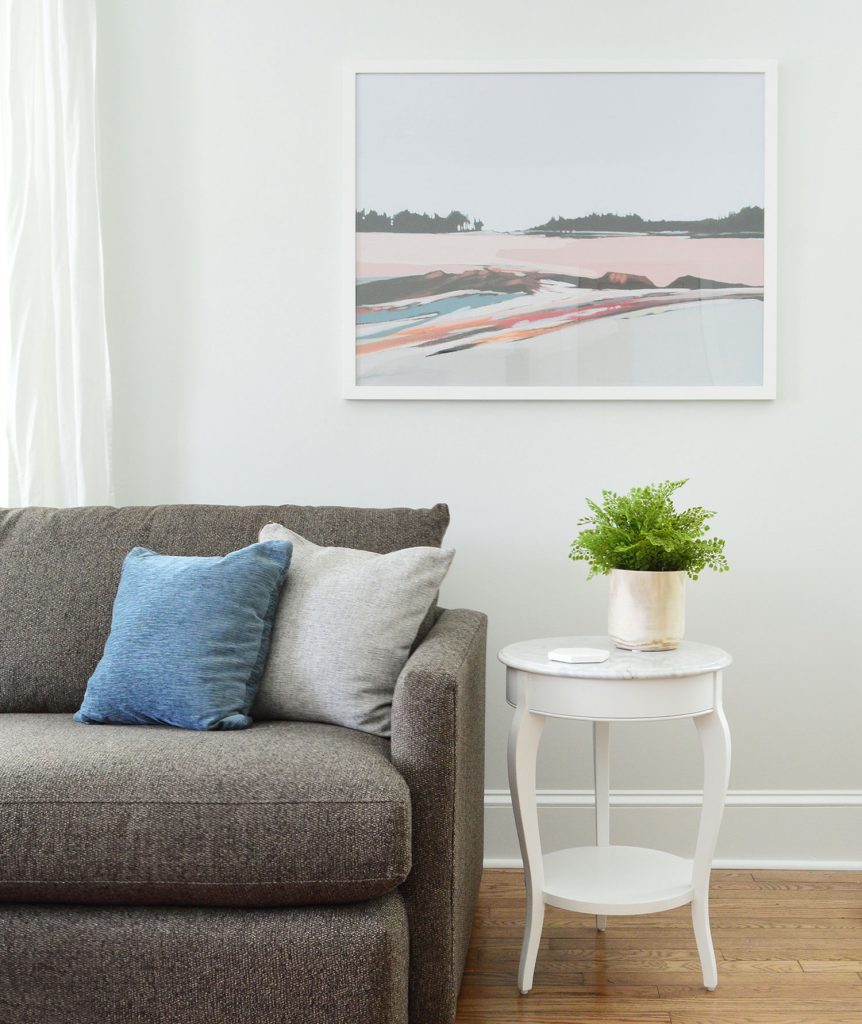
So what makes Extra White such a good choice if it’s not truly the whitest? Well, for your home you typically want white paints that are slightly muted and have undertones that complement other colors in your space. This prevents the walls from appearing too stark, cold, or blindingly bright. So Extra White’s popularity comes from the fact that it’s not actually that extra.
It’s a classic white paint that looks bright, clean, and colorless in your space, without overstepping into being stark or sterile. It’s a safe and strong choice loved by designers, DIYers, and home builders alike.
Is Extra White warm or cool?
Sherwin-Williams Extra White is a cool white, but just barely. This is why it reads like a true, crisp white in so many spaces. Warmer whites can sometimes look cream or off-white in certain lights, so Extra White is a great choice if you want to avoid that. It also doesn’t skew so cool that it appears gray, blue, or violet either, which can happen with even cooler whites.
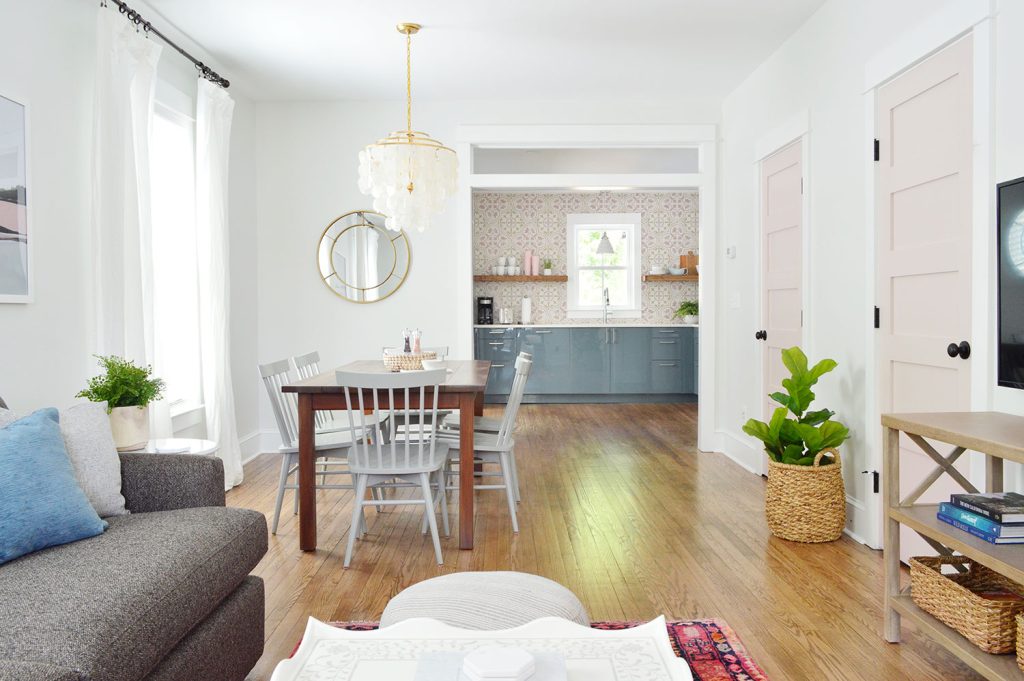
Its hint of coolness means it also pairs well with other cool colors or finishes in a room, like the gray chairs, blue cabinets, and cool pink doors in the room shown below. We used it on the trim in this home to achieve a crisp white trim throughout while using Sherwin Williams Spare White on the walls.
What is Extra White’s undertone?
Extra White has a very subtle blue undertone. Some people also see hints of green in there too. But the important takeaway is that its undertones are hard to detect, which is how it achieves a bright, white look in most spaces. Other whites can often look yellow, pink, or beige on walls, but Extra White avoids that common pitfall.
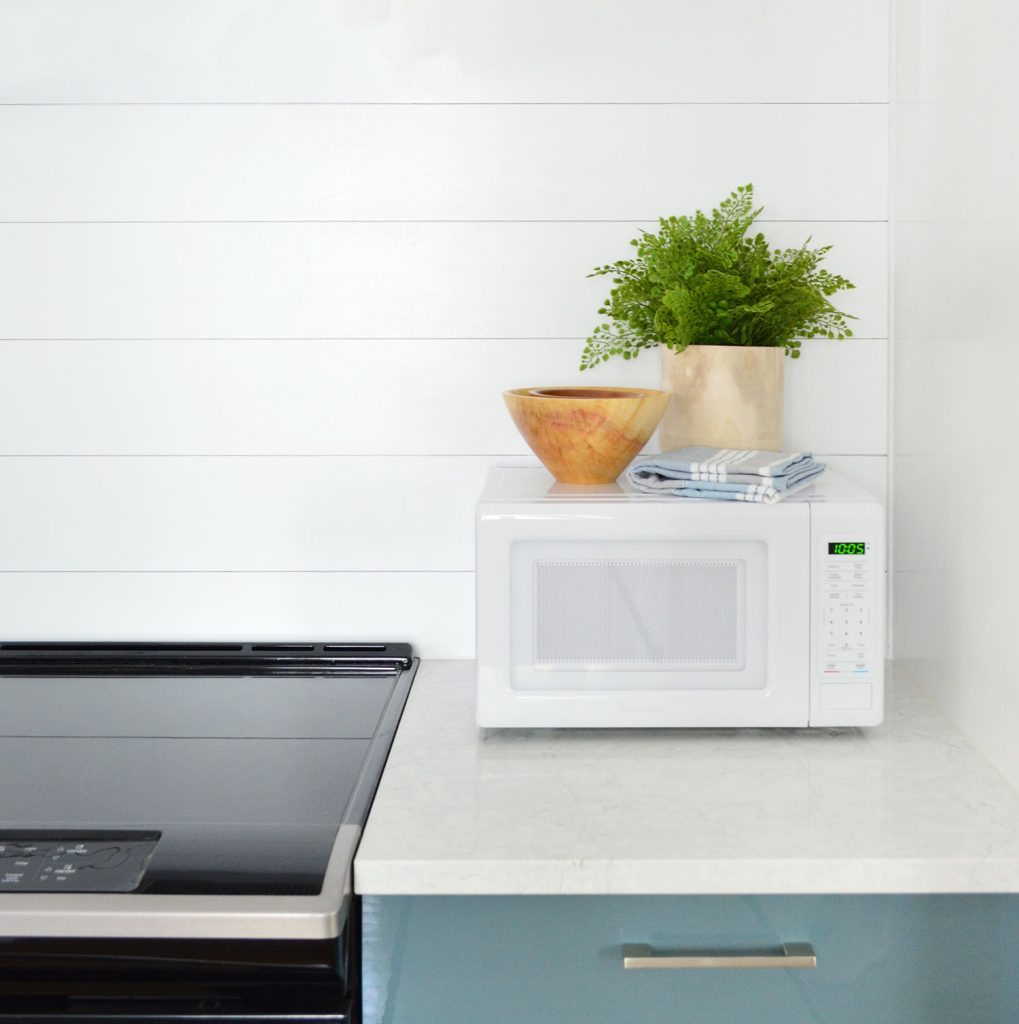
There are, however, two scenarios in which it can appear to have stronger undertones. They are:
- When used alongside warm whites: Pairing Extra White with warm whites, beiges, or other creamier colors, can cause its blue undertones to appear more pronounced. This might cause it to look bluer or grayer than desired.
- When paired with colorful paint or decor: White paints – especially on walls – can reflect other hues around them, particularly in rooms with lots of direct sunlight. That red accent wall or green velvet couch may cast that hue onto a paint like Extra White, changing its appearance.
This doesn’t necessarily make it a bad choice for your space. They’re just factors to be aware of before you slap on that first coat.
Is Extra White too white?
Sherwin-Williams Extra White is a fantastic white that looks clean, crisp, and bright without being too bright. We would recommend it to anyone who wants a “true white” that won’t look stark or sterile on their walls, trim, or cabinets. Whether you’re going for a modern farmhouse look or that all-white art gallery aesthetic, it is a solid choice for home interiors. It’s also a classic no-brainer white trim color that is the default for many new homes.
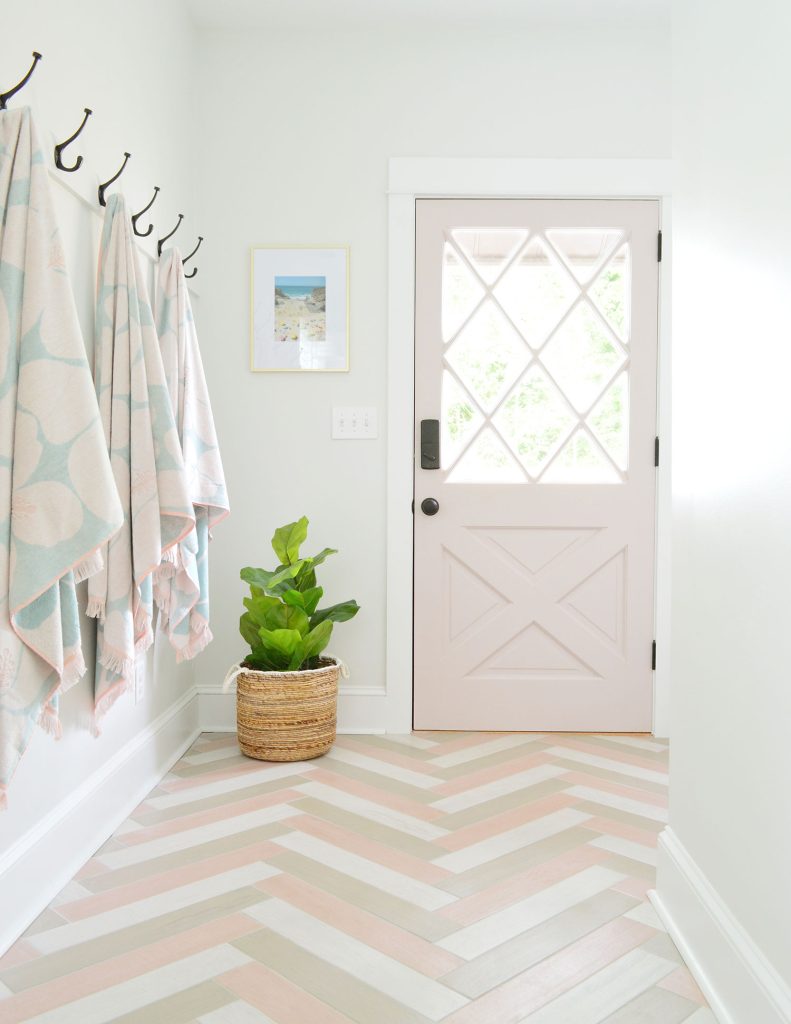
Extra White can look too bright, however, in exterior applications (or interiors with high amounts of natural light). Direct sunlight will make any white brighter, so we recommend using a slightly duller white instead.
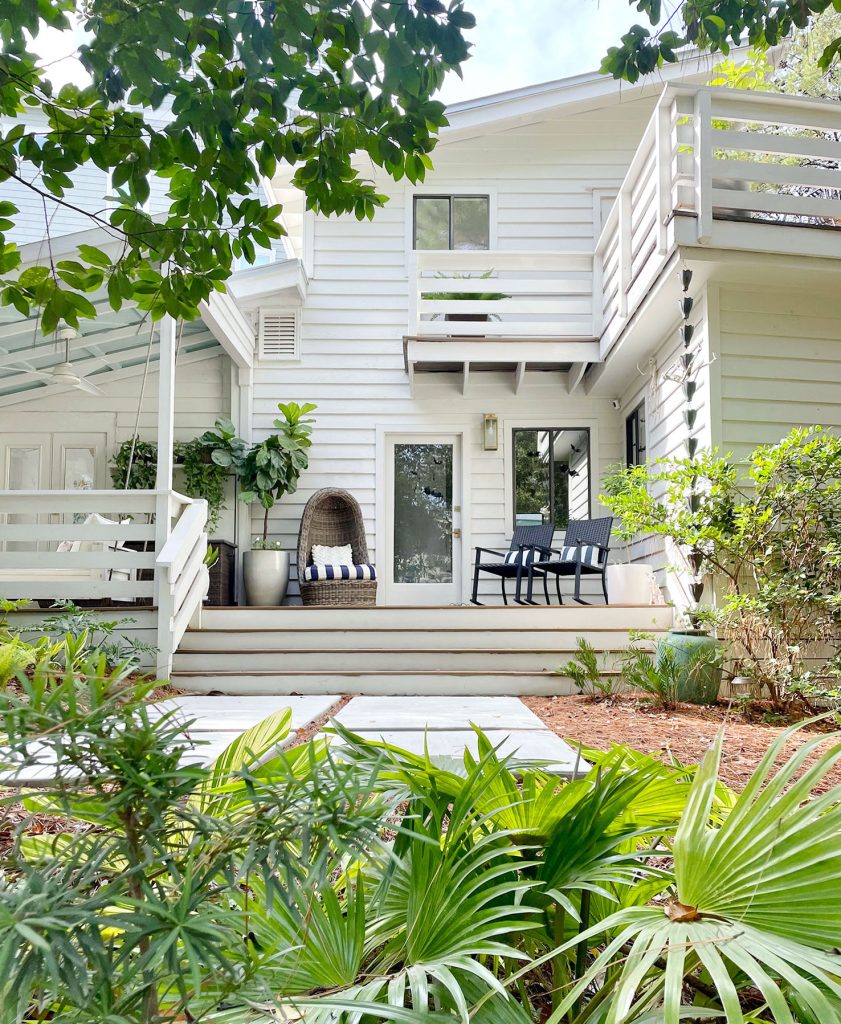
Our favorite exterior white is Sherwin-Williams Moderne White (SW 6168), which appears on our current house above. It still appears clean and bright on exteriors without blinding passersby.
What is the LRV of Extra White?
Light Reflective Value (LRV) is a standard measurement of how much light reflects off of a surface. 100 represents absolute white and 0 is absolute black. Sherwin Williams Extra White has a Light Reflective Value (LRV) of 86. This puts it in line with other crisp white paints, but below the brightest of them: Sherwin-Williams High Reflective White (SW 7757) has an LRV of 93.
We’ll use LRVs later in this post to compare more popular white paint colors.
Where should you use SW Extra White?
Extra White is a versatile white paint that works well almost anywhere you want a bright & clean look. It can be used on everything from walls and doors, to kitchen cabinets and built-in bookshelves.
We love it most as a no-fail trim color. In fact, many new home builders use it as a default, whole-house white trim color because of its broad appeal. It pairs well with a huge variety of wall colors and decor styles, which is why people love it. We used it throughout the home shown below (our duplex) because it was also bright enough to contrast with the off-white color we used on the walls (SW Spare White, which has an LRV of 77).
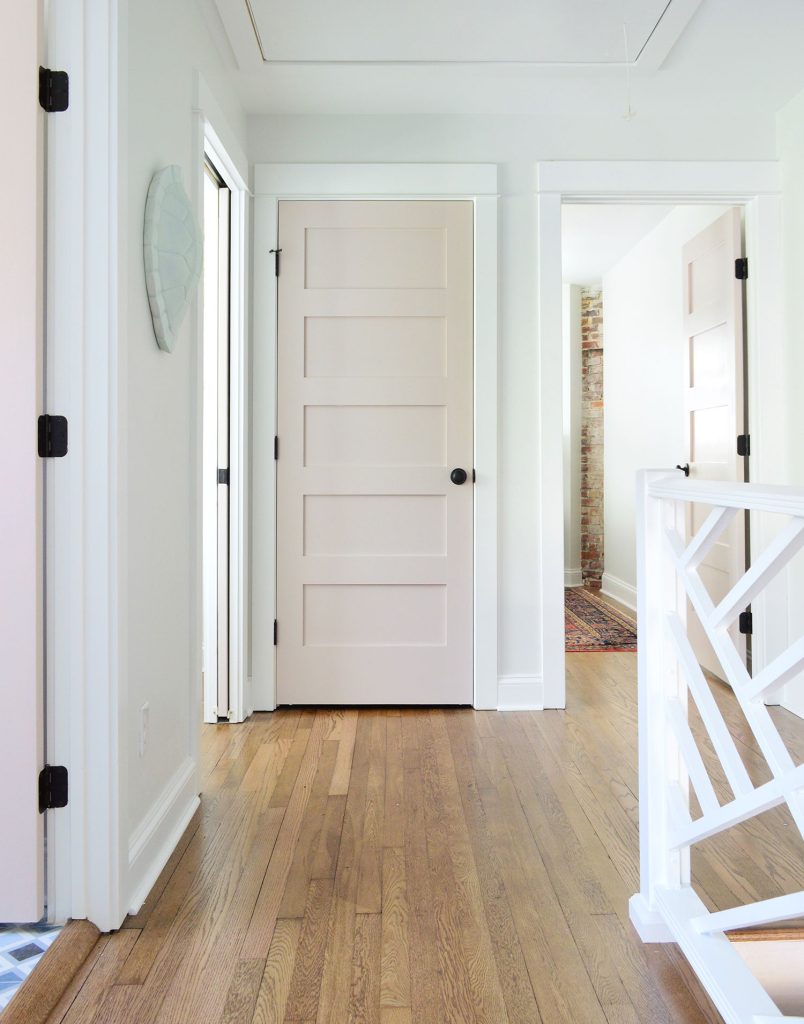
It works as a wall color too, especially in darker spaces that need brightening up. We used it on the walls and shiplap in our kids’ bathroom in our former home because the small north-facing window didn’t let in a lot of light. It can be used as a whole-house white paint color too, but due to its tendency to sometimes look stark in brighter rooms, this warmer white is our favorite white wall color.
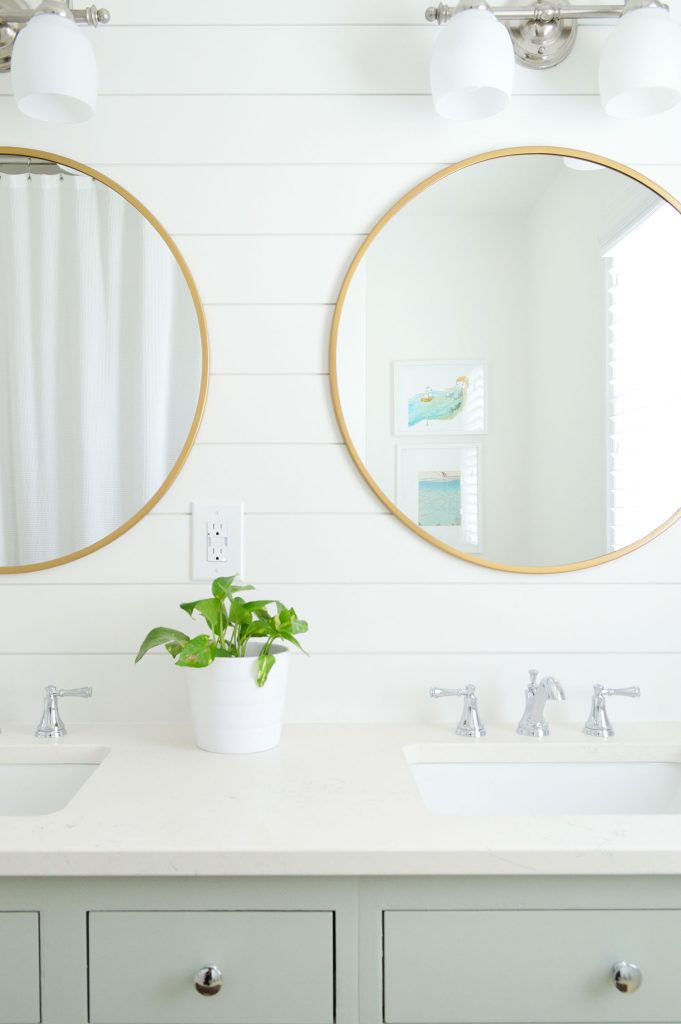
Overall, Extra White is a reliable supporting color. Put it on walls to help your art, decor, and furniture stand out. Or put it on trim, wainscoting, and cabinets to make your wall color pop. It’s free of distracting grays, beiges, or colorful undertones that make other white tones more complicated to use.
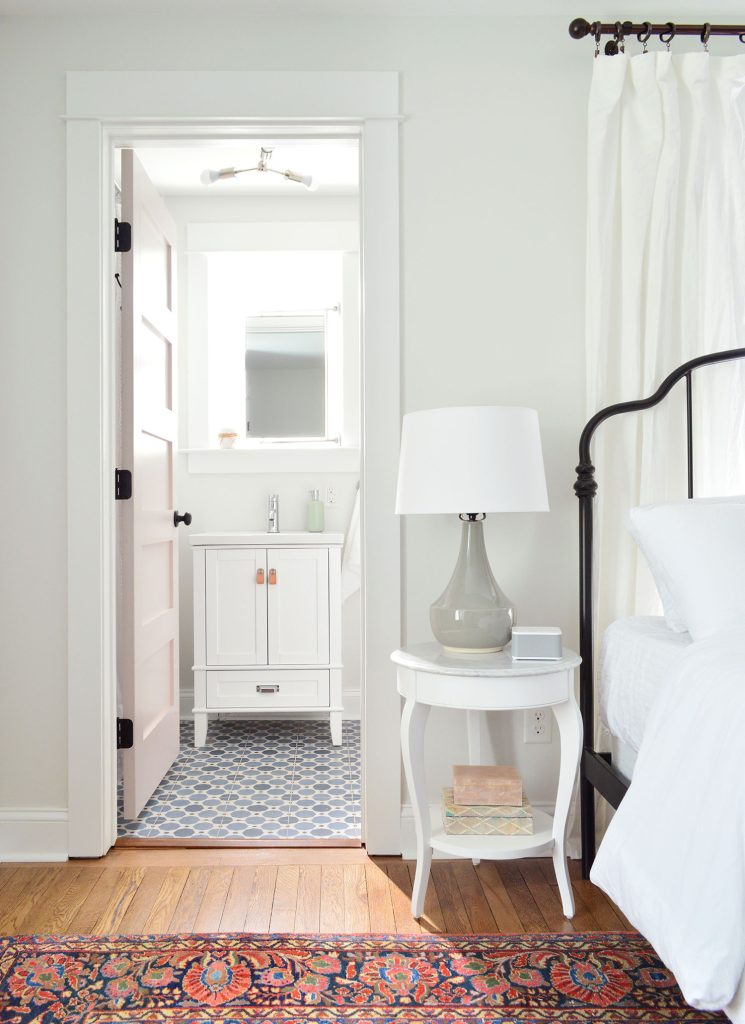
You can get a better idea of how Extra White works throughout a home in the video below, where you can see it on the trim throughout as well as on the kitchen shiplap. The walls are painted SW Spare White (SW 6203).
Note: You can also watch this video on YouTube.
When NOT to use Extra White
As discussed above, use Extra White on exteriors with caution. The bright outdoor light can cause it to live up to its name and look TOO blindingly bright, especially on large surfaces like siding, painted brick, or garage doors. It can be a good color for exterior trim, but we prefer using white paint colors that have a lower LRV and are a bit warmer, since they balance out the inherent coolness of most natural light. Consider whites like SW Moderne White (SW 6168) or SW Snowbound (SW 7004) instead, which is what we used on the trim of our previous brick home, shown below.
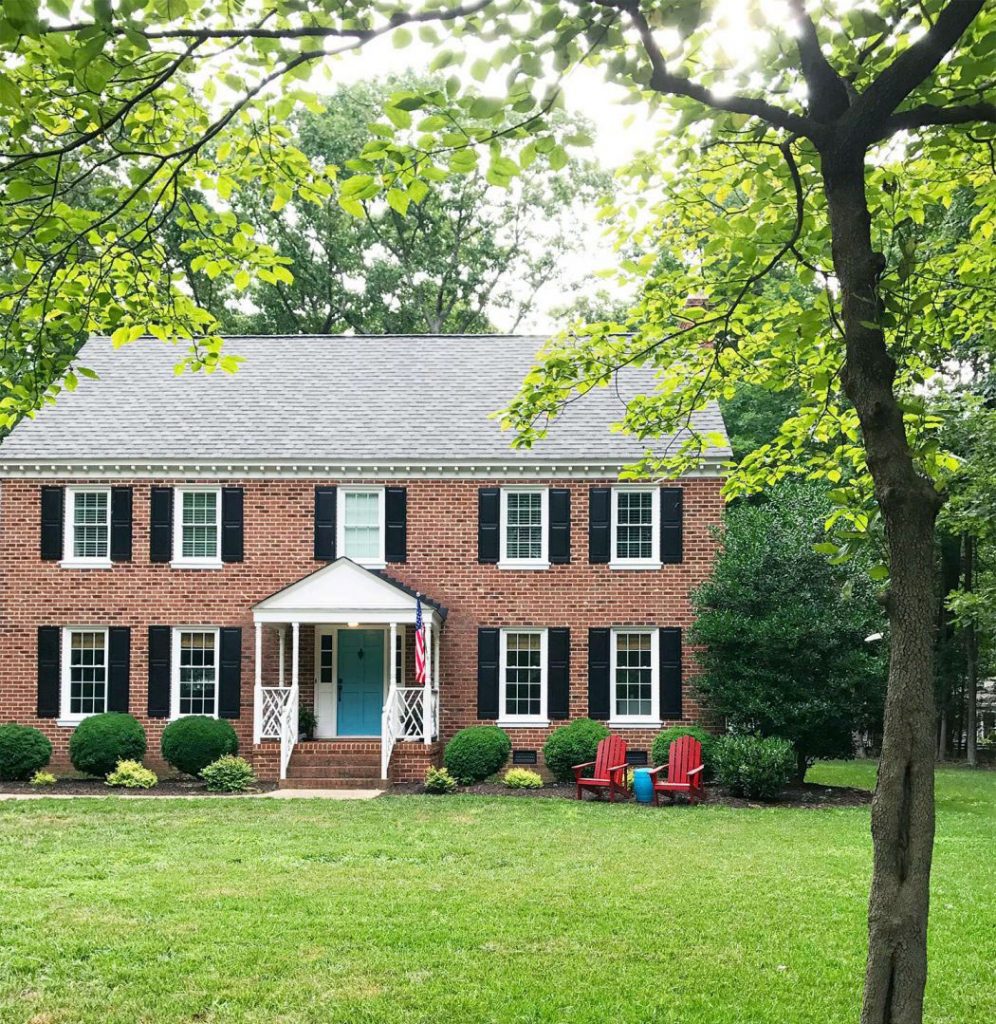
Every situation is different, however, so we recommend testing any paint color before using it – especially in large or expensive applications like a whole house exterior.
What trim color works best with Extra White?
When using SW Extra White on your walls, we typically recommend using it on your trim as well. Just use different sheens (like an eggshell finish on the walls + a semi-gloss finish on the trim) to add subtle, sophisticated contrast.
You could use a brighter white like SW High Reflective White on your trim for more contrast. However, it may make your Extra White walls look slightly gray by comparison. This is what makes pairing bright whites so difficult – they tend to accentuate their differences, inevitably making one look darker or yellower or grayer by contrast. That’s why it’s usually safest to use the same bright white on both surfaces since it will preserve the clean white look you want.
Comparing Extra White to other popular white paint colors
Let’s take a closer look at how Sherwin-Williams Extra White stacks up against some other bestselling white paints. We find that examining white paint tones head-to-head is a great way to understand their subtle differences, which will help you select the right white for your home.
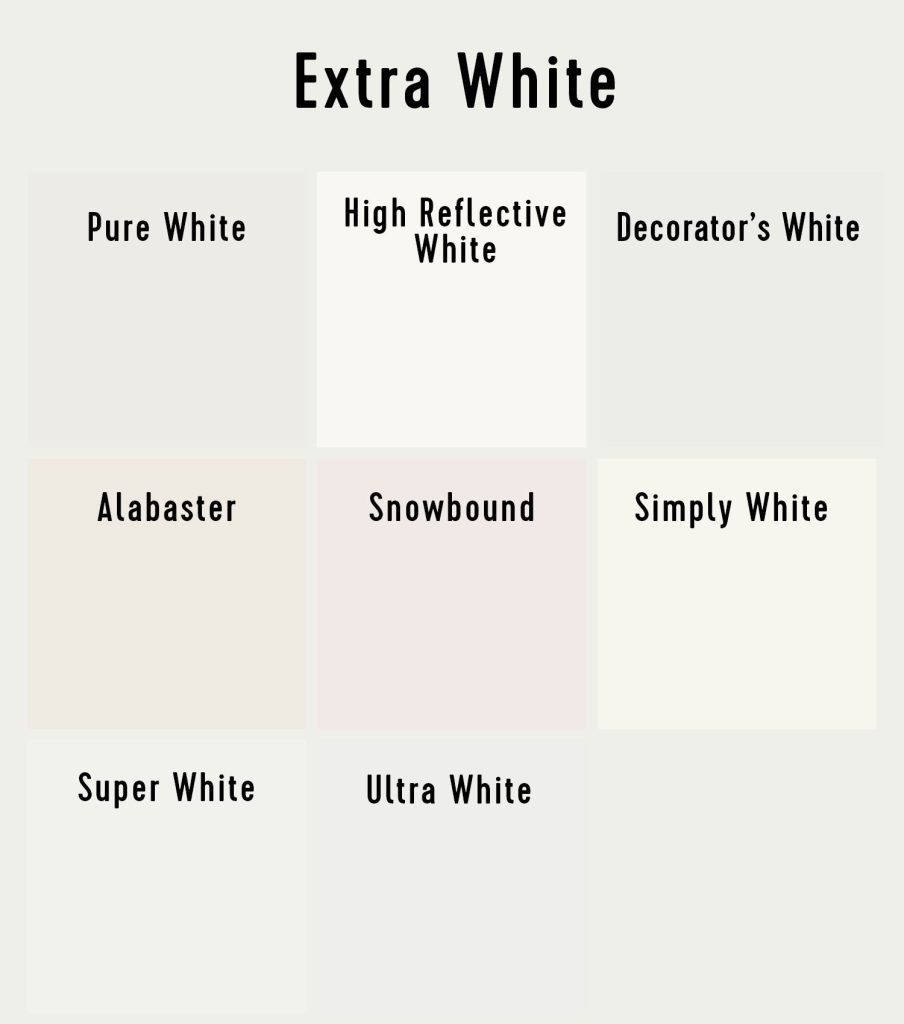
The swatches shown here are from paint manufacturers’ websites. While not a true representation of their real-life appearance, they offer an apple-to-apples comparison that makes discussing them easier. It’s still best to view a swatch in person before finalizing your decision. Or, even better, test the color on your wall! The pre-printed paint sample stickers linked below are a quick, easy, and affordable way to do this without even picking up a paintbrush!
SW Extra White vs SW Pure White
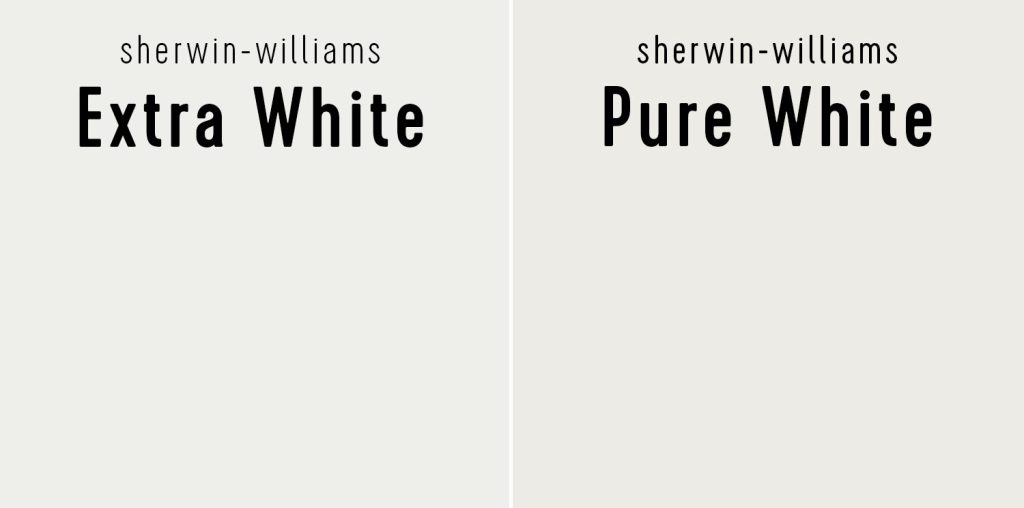
Sherwin-Williams Pure White (SW 7005) is Extra White’s warmer twin. They have near identical LRVs (84 and 86, respectively). They both have extremely subtle undertones, which gives them that sought-after appearance of a clean, crisp white. The key difference? Pure White skews warmer because of its slight yellow undertone. This makes it a slightly better fit for rooms with other warm colors and finishes. We also find its hint of warmth makes Pure White a bit cozier than Extra White, which is why it’s our preferred whole house white.
SW Extra White vs SW High Reflective White
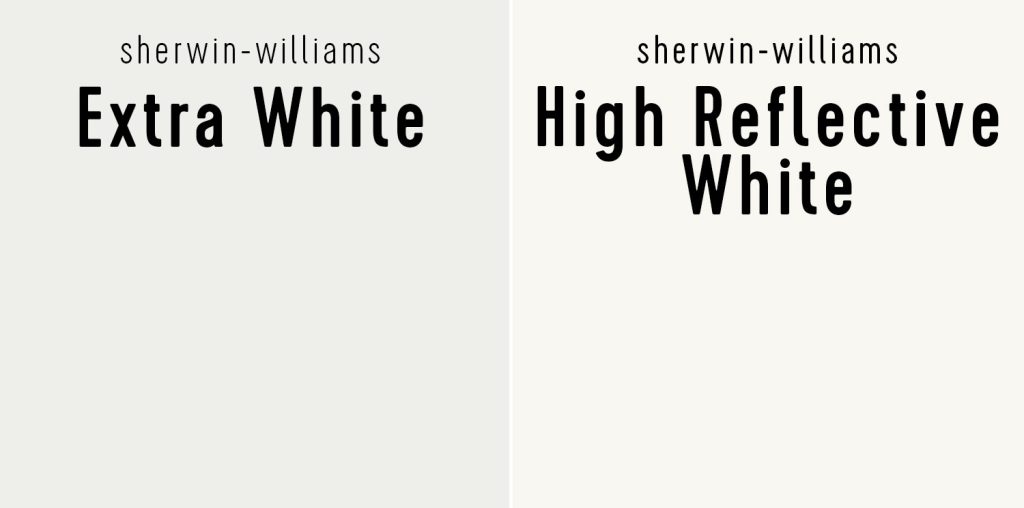
High Reflective White (SW 7757) has an LRV of 93, making it one of the brightest white paints available. While this makes it too white for most walls and exteriors, it can be a useful trim color – especially if you’re looking for a contrasting white trim for Extra White walls. We mostly included it in this round-up to demonstrate how Extra White isn’t really that extra.
SW Extra White vs BM Decorator’s White
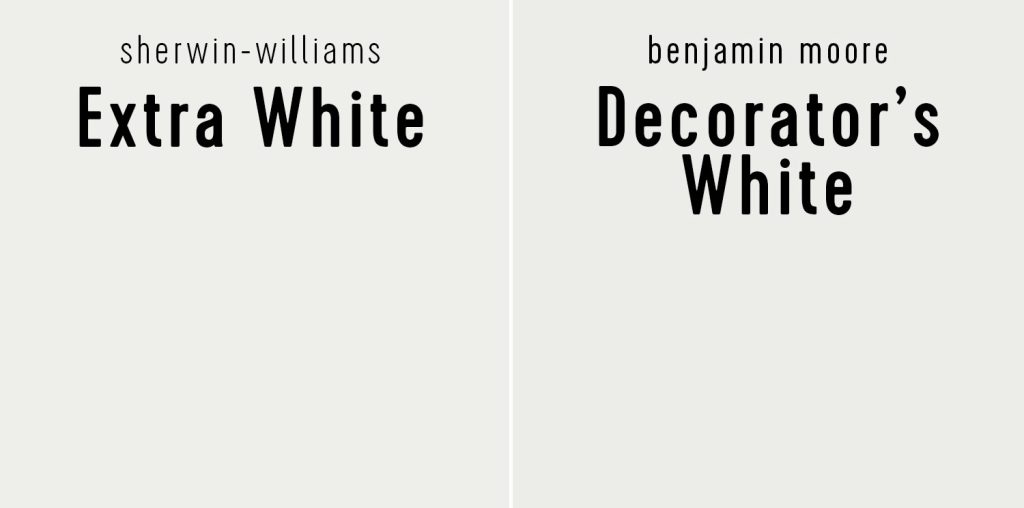
Benjamin Moore Decorator’s White (CC-20) is a close match to Sherwin-Williams Extra White. It is a hair darker, with an LRV of 83 compared to Extra White’s 86, but that’s barely detectable to the human eye. Both are popular choices because of their subtle, but slightly cool gray undertones.
SW Extra White vs SW Alabaster
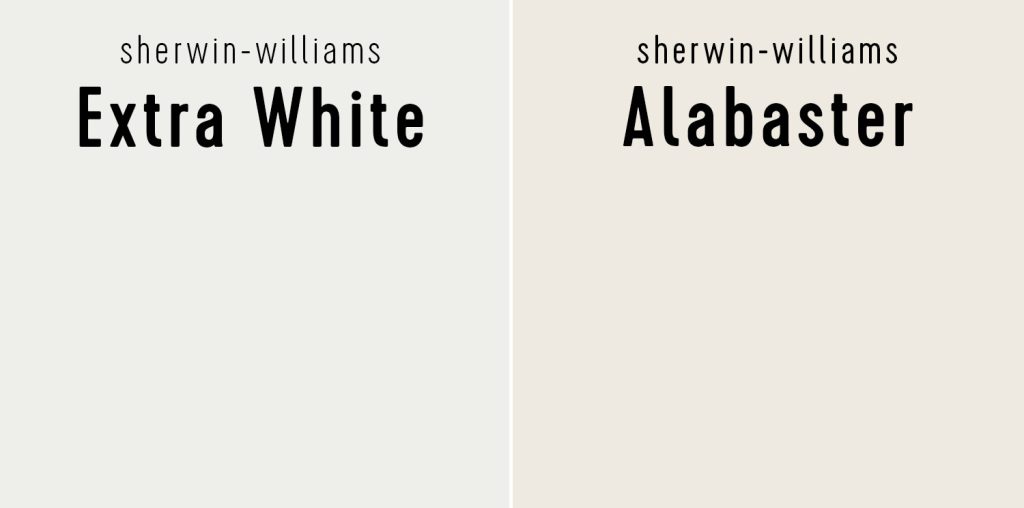
Alabaster (SW 7008) is another one of Sherwin-Williams’ top-selling whites, but it is MUCH warmer than Extra White. You can see it has visible beige undertones that can make it appear more “greige” than white. These two whites often clash and accentuate their opposing undertones, so we don’t recommend pairing Alabaster walls with Extra White trim.
SW Extra White vs SW Snowbound
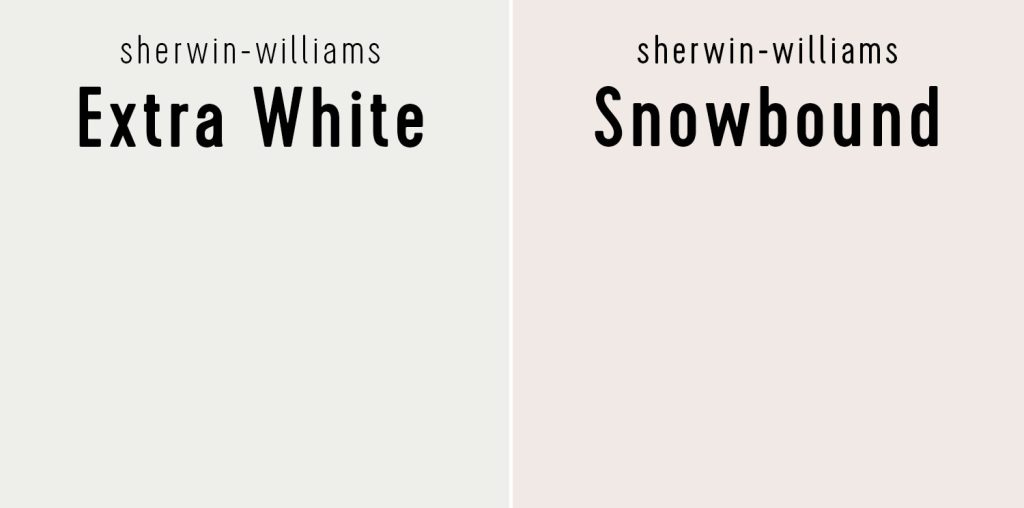
Sherwin-Williams Snowbound (SW 7004) is another popular white that we do NOT recommend pairing with Extra White. Snowbound is a warm off-white with red undertones, which can become more pronounced when used next to a cooler color like Extra White. Instead, use Snowbound with other warm tones. For instance, we used it for exterior trim on our house with red brick and it looked like a crisp white with the same undertones as the brick, so it was harmonious.
SW Extra White vs BM Simply White
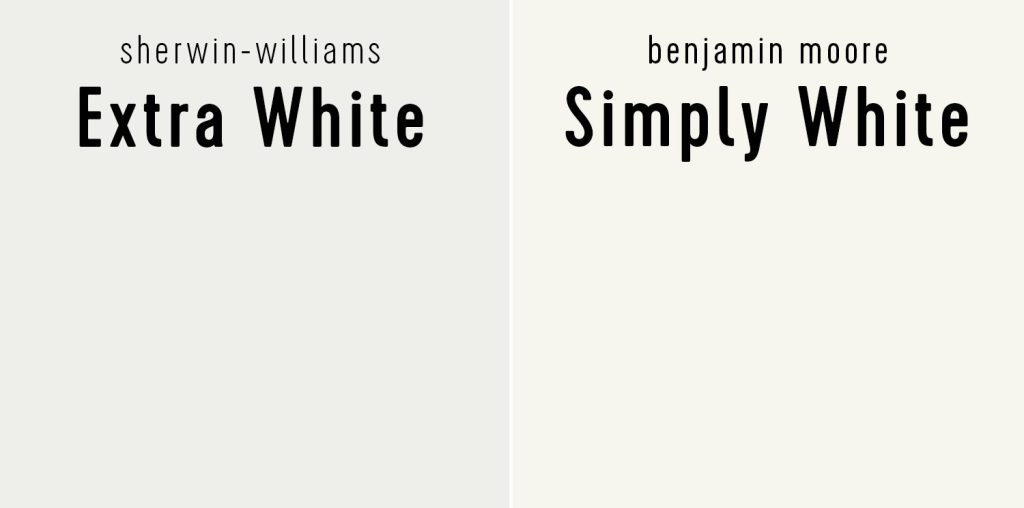
Benjamin Moore Simply White (OC-117) is warmer and brighter (LRV 90) than Sherwin-Williams Extra White (LRV 86). It is another white we use frequently on interior trim, especially in spaces with warmer finishes. We love its warm undertones, but sometimes it can appear too yellow.
SW Extra White vs SW Super White
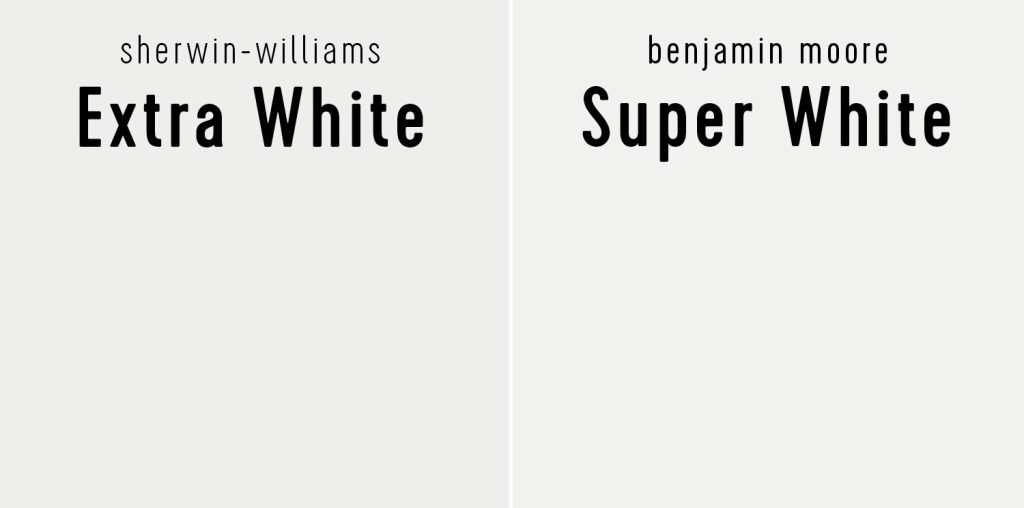
Benjamin Moore Super White (OC-152) is considered the closest match to Sherwin-Williams Extra White. It is a slightly brighter option (an LRV of 87 vs 86) so you can always go with something slightly darker instead (BM Decorator’s White) if you’re concerned about either one being too white.
SW Extra White vs BM Ultra White
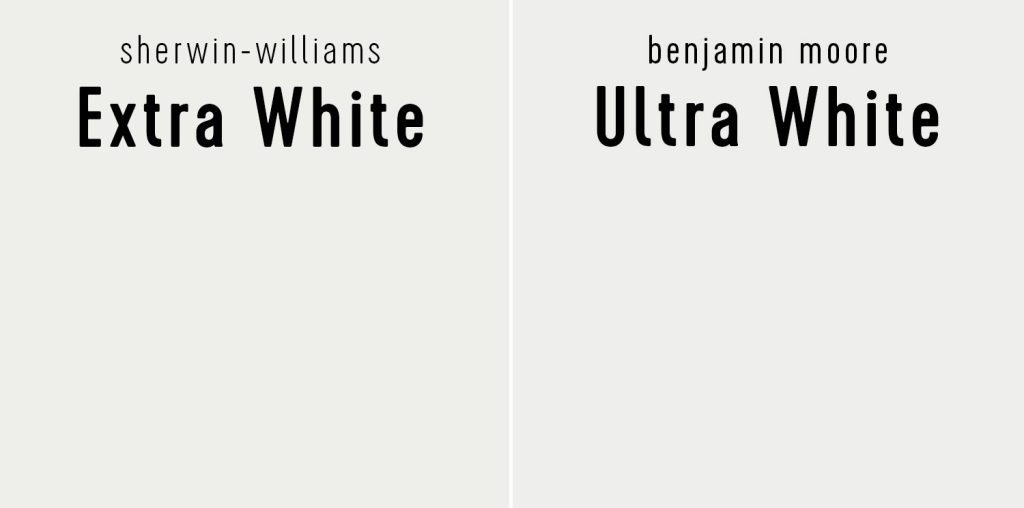
Benjamin Moore Ultra White (CC-10) is another good alternative to Sherwin-Williams Extra White, if you’re looking to cross brands. Unlike the other Benjamin Moore matches discussed above, however, Ultra White is noticeably cooler than Extra White. This may be a helpful nuance in your space, but it can look light gray in certain lights.
Final considerations
Don’t let Extra White’s name scare you off. It’s actually a classic, clean, not-too-white white that’s trusted by experts for a variety of good reasons. It’s light & bright without much visible undertone, which makes it an especially good choice for trim and molding. It plays nice with tons of colors and finishes, making it a good supporting white in any home. However, many people – including us – prefer whites with a bit more warmth and depth, especially when painting entire rooms or houses. For this reason, we chose this other white for our home.
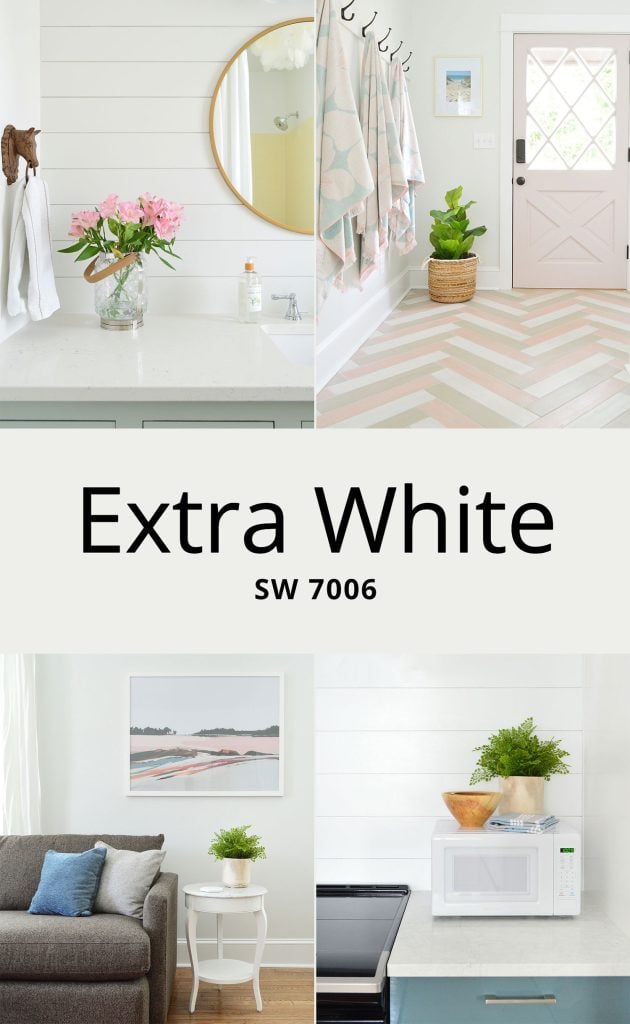
Still, Extra White remains in our Top 3 white paint colors, especially when it comes to getting that bright white trim look.
More paint colors we love
You can check out more of our favorite, go-to paint colors by touring our homes in the menu at the top of our blog under the header (here’s the home featured in this post) or browsing our Painting Projects section. We’ve also written deep-dives on some of our favorite paints:
*This post contains affiliate links, so we may earn a small commission when you make a purchase through links on our site at no additional cost to you.

